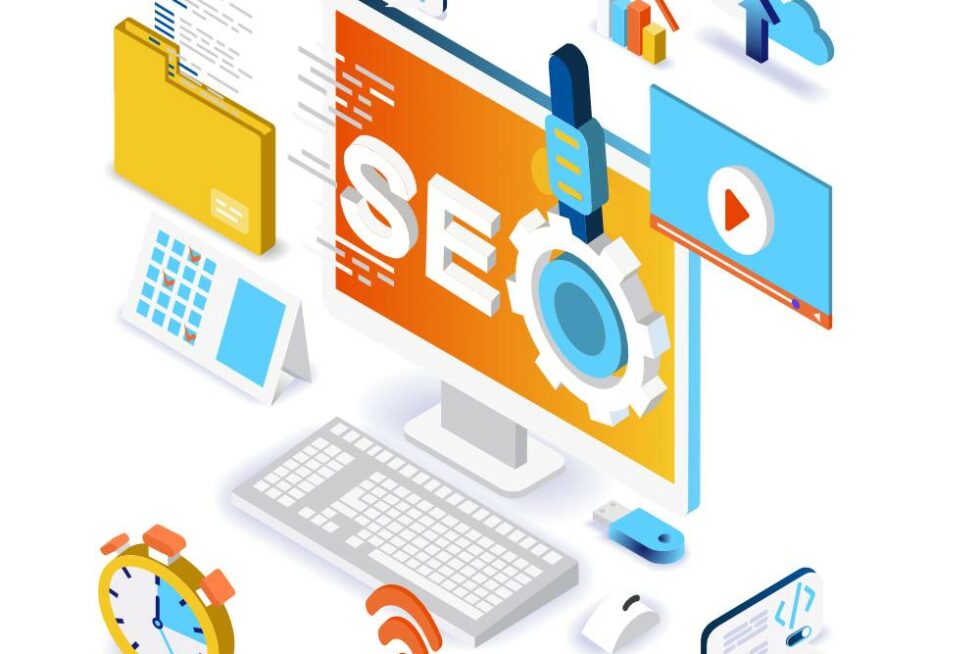Search engine optimization is a really an umbrella term that covers dozens of different factors that can affect your website’s visibility in search engine results. These factors are broken down into two groups: on-page SEO and off-page SEO.
No matter what size business you have, your website needs to start by laying a solid groundwork with both on and off-page SEO. Without this it is unlikely you will have very much organic traffic let alone high rankings on Search Engine Results Page (SERPs).
Since Google’s search engine algorithm is constantly changing, making it hard for people to understand where they should be focusing their efforts, we’ve broken down the factors that we think are most important.
Breaking Down On-Page SEO and Off-Page SEO
On-Page SEO
On-page SEO refers to the steps taken within the website to optimize for organic search engine rankings. It includes optimizing the content, images, titles, headings, meta tags, and URLs. It also includes making sure the code is clean and free of errors. Here are 7 of the most important on-page SEO factors that you should consider for your website:
1. Title Tags: Title tags are one of the most important on-page SEO factors, as they provide an easy way for search engines to understand the content of your page. The title tag should be relevant to the page’s content and include keywords that you want to rank for.
2. Meta Descriptions: Meta descriptions provide a brief overview of your website and should also include relevant keywords that you want to rank for.
3. Headings: Headings provide structure and context to your web pages and should be used throughout your content in a logical way. They also help search engines understand the topics covered on each page, which can boost rankings in search engine results pages (SERPs).
4. Content Quality: Search engines favor websites with high quality content, so make sure that your website contains well written, informative, and relevant articles or blog posts that are free from spelling errors and grammatical mistakes.
5. Internal Linking: Internal linking helps search engines understand how all of the pages on your website relate to one another, which can boost rankings in SERPs by providing more contextual information about each page’s topic.
6. Keyword Usage: Using keywords strategically throughout your content will give it a better chance of ranking in SERPs for those terms or phrases. Try to use them naturally within headlines, body copy, image alt text, meta descriptions, etc., without overstuffing them into every sentence or paragraph on a page.
7. Page Load Speed: Page load speed is another important factor when it comes to SEO because slow loading pages can negatively impact user experience and cause visitors to leave quickly before they have had time to explore more of your website’s content or take any desired actions (like making a purchase). Optimize images and videos as well as minimize code bloat so that visitors don’t have wait too long for pages to load properly on both desktop and mobile devices.
Off-Page SEO
Off-page SEO refers to activities outside of your website that can help improve organic rankings in SERPs. This includes link building activities such as obtaining backlinks from other websites or creating content with authoritative sources that link back to your site. It also involves activities such as social media marketing which can help increase visibility and drive more traffic to your website from various sources online. The 4 most important off-page SEO factors are:
1. Link Building: Link building is an essential part of SEO as it builds credibility and trust with search engines. The more quality websites linking to your website, the higher your rankings will be in SERP’s.
2. Social Media: You should set up as many social profiles as possible for your website, particularly on Facebook, Instagram, and LinkedIn. These sites help generate inbound links from other websites as well as creating a platform for engaging with potential customers and followers.
3. Online Reviews: Positive reviews from customers can help boost the credibility of your website, which can have a positive effect on its rankings. Encouraging customers to leave reviews can also help to improve overall engagement with the website and its content.
4. Brand Mentions: Brand mentions are a great way to increase visibility online, particularly when linked with quality content or industry influencers or experts. This helps to build trust and authority in the eyes of search engines and could result in improved rankings over time.
Final Thoughts
When considering all the factors that go into SEO it’s important if you are just starting out to prioritize on-page SEO. Once you have your foundation set, you can start focusing on off-page efforts.
We get it, it’s a lot. Most businesses don’t have the time or manpower to focus on SEO, when what they need to be focusing on is their business. Set up a call with our SEO team to discuss how we can help you improve your visibility without breaking your budget.



